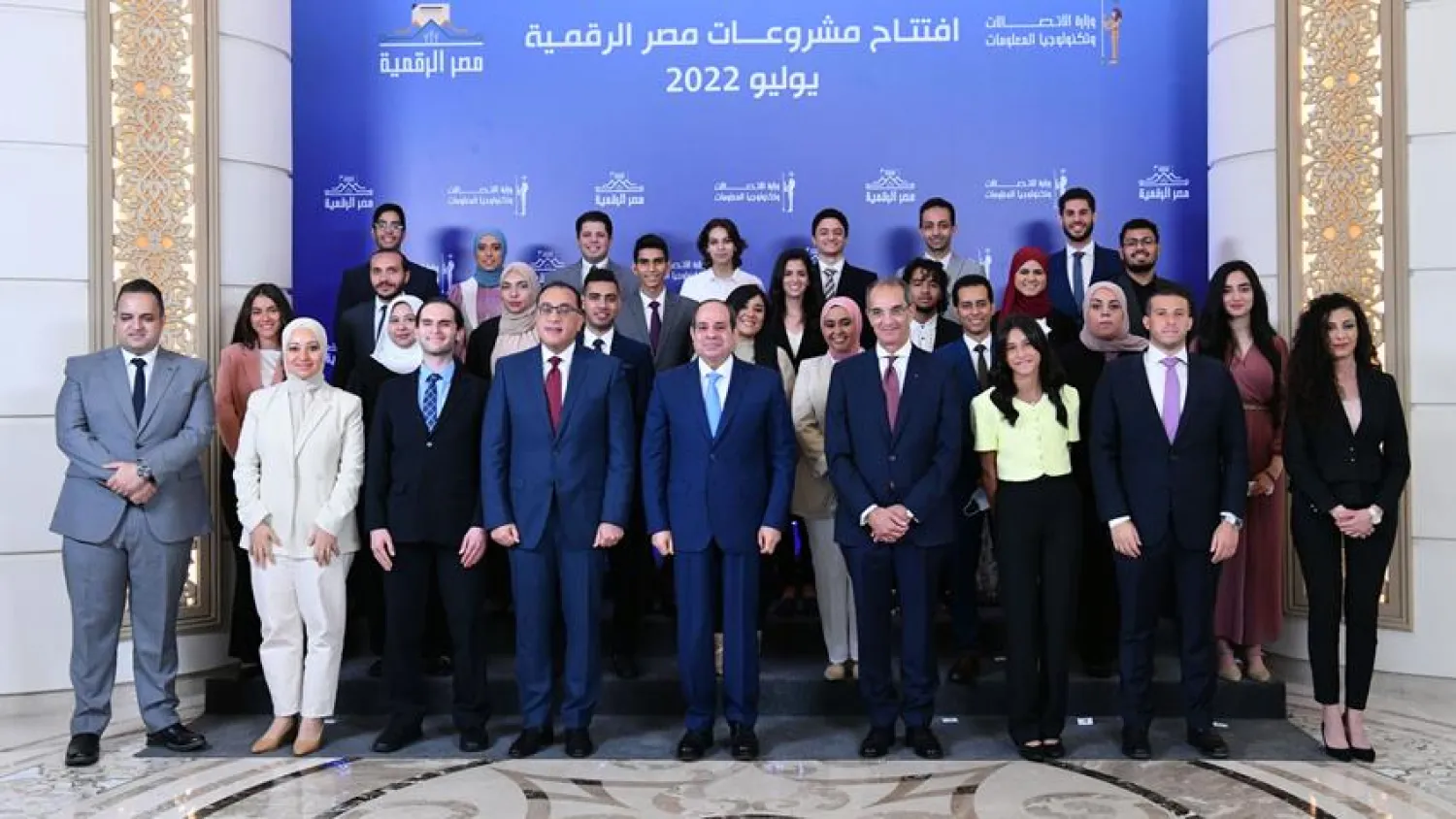Egyptian President Abdel Fattah el-Sisi asserted the New Administrative Capital would be established despite the "costs and difficult conditions," in reference to the economic crisis the country is facing due to the Russian-Ukrainian war.
The New Administrative Capital is located 75 kilometers east of Cairo, holding several projects worth around $300 billion.
Sisi launched the Digital Egypt platform Wednesday to provide electronic services to all Egyptian people.
He stressed the importance of continuing to work on the New Capital despite the costs and difficult conditions, acknowledging there were doubts during the past five years regarding establishing the capital.
Some officials, including lawmakers, call for halting the construction in the new cities to face the economic and food crisis.
Sisi reiterated that the New Administrative Capital Company established the city through its resources, not with government funds, and the Company asked the cabinet for an annual fee of EGP4 billion as usufructs to use the government district.
The Egyptian cabinet held its first preliminary meeting in the New Capital last December.
Sisi noted that the employees of the new communication centers had been completely secured, adding that the cost of shifting towards digital processes, AI, and the new republic are estimated at EGP 100 billion in civil construction only.
"I would not be exaggerating if I said that to automate the Government District in a way that provides very advanced work for the Egyptian state — whether through the work of data centers or the part that employs at least 50,000 persons, the secured network, and other centers — it would cost about EGP 100 billion," said Sisi.
He also explained that the Egyptian state is digitizing to transform the country into a new republic; therefore, the cost will be high.
Sisi mentioned that the goal of celebrating "Digital Egypt" projects is to shed light on the importance of this project for the future of the country and its children, indicating the state's readiness to bear the expenses of 100,000 IT students if they meet the requirements.
He added that the state is ready to spend between EGP 10 to 12 billion to fully qualify those students.
The President witnessed the launch of the "Digital Egypt" platform and several projects via video conference.
The projects will include cable landing stations in Ras Gharib, Zafrana, Sidi Kerir, International Data Center in Cairo, WE Joint School of Applied ICT, Egyptian Digital Creativity Centers, and the development of the Postal Museum.









